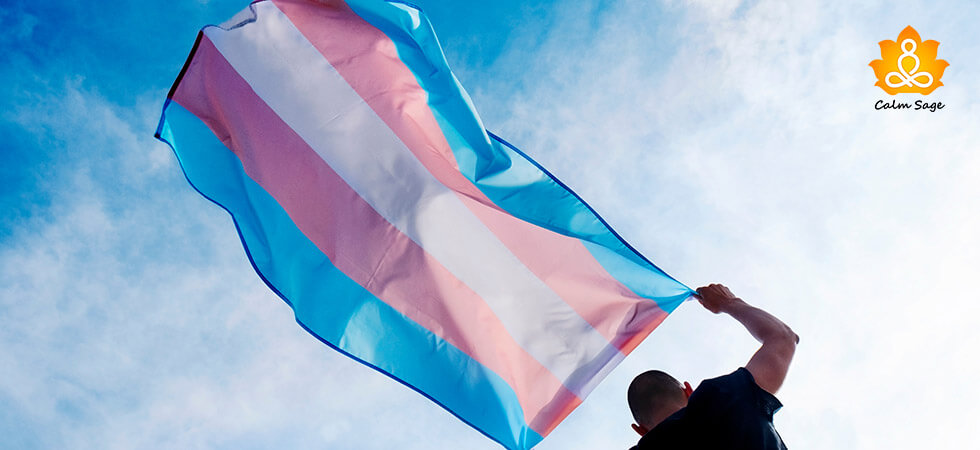The Do’s And Don’t For Supporting Trans And Non-Binary Loved Ones

Love is supposed to be unconditional. It isn’t about making your loved ones feel alone. It isn’t about making them feel invalidated and unacknowledged. Love means accepting all parts of the one you love with an open heart and an open mind.
Love, for me at least, is a combination of three things; respect, honesty, and support. And these three things that encompass the term “love” are most needed when we have Trans and non-binary loved ones.
Did you know that in 2022, 86% of Trans youth said they thought of suicide or had suicide ideation while 56% said that they attempted suicide?
Another survey from 2020 suggested that people normally experience gender dysphoria by age 7 and Trans individuals don’t socially begin their transition or undergo hormone therapy until they are in their 20s.
Transgender and non-binary youth are more likely to experience mental health struggles than their cisgender counterparts. This number just highlights the importance of providing transgender and non-binary youth with the right tools and support.
Having a strong support system can mean everything to someone who’s struggling with their gender identity and finding their place in the world. Whether they find support from friends, family, therapist, or their peers from the LGBTQIA+ community, having support and a safe space to be who they are without worrying about hiding their identity can be affirming in itself.
Social support gives transgender, non-binary, and other minority groups the space to be themselves without suppressing their true selves.
Not having support, on the other hand, can leave an emotional wound, too difficult to stitch back together. When trans youth who identifies as non-binary surrounds themselves with people who support and accept their identity, it can leave a trail of positivity in its wake.
And that’s what we’re learning about in this article. Let’s explore the dos and don’ts for supporting your transgender child, friend, family member, community member, peer, or coworker.
Let’s learn to be the person our transgender loved ones can look to for the support they need.
The Do’s & Don’t for Supporting Transgender & Non-Binary
The Do’s:
1. Be Positive With The Coming Out
When your transgender child, friend, or family member comes out, you need to show your support by smiling and accepting them wholeheartedly. It’s good when you can respond with, “Thank you for sharing this with us! Congratulations!” Remember, coming out should be on their pace and not forced. Plus, it’s a celebration so try to be positive with their coming out to not make them feel judged, shamed, or abandoned.
2. Listen Before You Speak
When your transgender loved one tells you their gender identity, your brain may come up with lots of questions but you need to wait. If you keep speaking over them, they might not say what they need to say. Many people, when they come out, have a script beforehand so it’s important to give them space and let them express themselves.
3. Use The Right Pronouns
If your transgender loved one is transitioning then they may have different pronouns and you can support your transgender loved ones by using the right pronouns and not misgendering them. It’s one of the easiest ways to support and validate an individual’s identity. For trans and non-binary people, their pronouns are the only thing they have control over so pronouns are important. You can show your support as an ally by adding your preferred pronouns in your social media bios and email signatures.
4. Check-In With Your Loved One
Sometimes, you may think your loved ones need someone to defend them from an offensive comment but it’s important to check in with your loved one before you take the step. Ask them how they’d like to proceed. As a supporter of a transgender loved one, you should know when to step in and when not to.
5. Self-Educate And Research
It’s OK to have questions about your loved one’s gender identity but keep in mind that a trans or a non-binary individual may not be comfortable answering your questions. You can’t expect a trans or non-binary person to educate you. Each individual’s experience and journey are different. All you can do to support your transgender loved one is to self-educate and research on your own.
You can refer to these websites:
- Trans Lifeline
- The Trevor Project
- PFLAG
6. Stand Up For The Trans Community
Not just in front of them or for them but every trans and non-binary person. You can’t be complicit in your support when your loved ones aren’t there. Being an ally means being an ally to all of the community not just for a selected people. Be kind in your approach but be firm. If someone says something offensive or inappropriate, let them know that no one can judge anyone’s identity. Stand up for the community and speak up against gender-conforming beliefs.
7. Remember, Exploring Gender Is A Journey
For many non-binary and transgender individuals, exploring different identities is a part of the journey. An individual may come out as a trans man and wear men’s clothes but then decide it’s not for them and wear something else the next day. As an ally, you need to remember that exploring gender is a journey and one’s gender can evolve and change.
The Don’ts
1. Only Discuss About Gender Identity
Gender exploration is a big part of an individual’s journey but it’s not the only thing. Transgender individuals are people and just like you, they have hobbies, interests, a job, and other things unrelated to their gender identity. You don’t need to discuss their gender identity only. Focus on other topics of discussion as well.
2. Ask About Genitals
Asking about genitals is off-topic! It’s an intimate and personal thing to discuss and none of your business. Some people might be comfortable but the majority of the individuals are not comfortable talking about their genitals or even surgery. Instead of asking about their treatment, ask them how’s their journey going so far?
3. Force Their Boundaries
You can’t expect everyone whether they are transgender, non-binary, or cisgender to be an open book. Some people want their details to remain private and you need to respect that. Don’t push someone out of the closet or invade their boundaries just because you are curious.
4. Make It About You
When your transgender loved one try and experiment with different pronouns and gender expressions, let them. Don’t make their transition or journey about you. If your loved one asks you to change their pronouns then don’t deny them that. Even if you’re a cisgender person, don’t compare your experiences with your trans friend. Avoid saying the phrase, “I know what you’re talking about” or “I know how you feel”. The best thing to do is to listen and not compare.
5. Make Assumptions Beforehand
There may be times when a friend or another loved one comes out as transgender or non-binary when you already have a loved one within the community. What’s important to keep in mind is that each individual’s journey is different and each experience is unique. You can’t assume otherwise. So you need to avoid making assumptions based on others’ journeys. Each individual is unique and so are their stories.
Writer’s Thoughts
Transgender and non-binary individuals often face discrimination and ridicule because of their gender identity. As their loved ones, you can support and communicate with a transgender better by listening, reading resources, and researching more about being a better supporter and ally to them.
What not and what to say when someone comes out as trans is one of the steps in supporting transgender and non-binary loved ones. Respect your transgender loved ones and understand that exploring one’s gender is a journey and there may be times when your loved one’s identity may evolve.
Make sure, then and now, you take care of their journey, respect their experience, and support their gender identity.
It’s not easy to ask questions and express one’s identity so be compassionate and supportive. Calm Sage is a proud ally to the LGBTQIA+ community and you can join us in our support by sharing your stories with us on our social media with #LoveOutLoudWithCalmSage.
You can also share your stories and thoughts about this article on what not and what to say to a transgender and non-binary loved one with us at info@calmsage.com.
Lots of love and support to all!
Happy Pride!




















